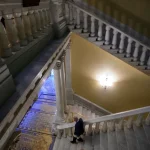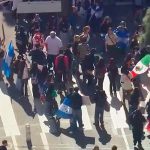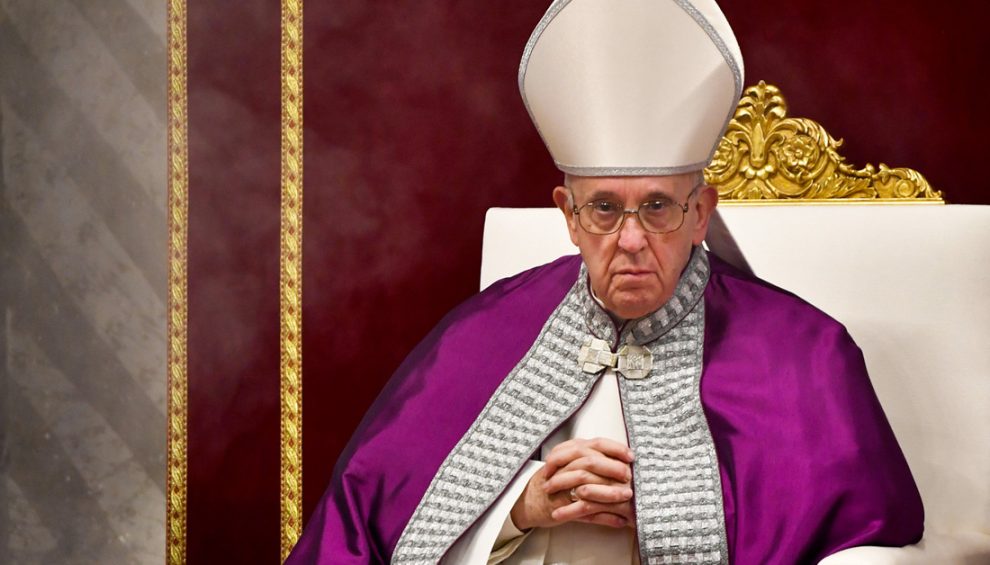ROME, Italy — Pope Francis accused the West of racism Friday, insisting migrants are “subdivided” by skin color and country of origin.
“Refugees are subdivided,” the pontiff declared during a lengthy Good Friday interview on Italian television. “There’s first class, second class, skin color, [whether] they come from a developed country [or] one that is not developed.”
“We are racists, we are racists. And this is bad,” the pope stated.
As he has done on other occasions, Francis compared the current problem of migrants and refugees to the flight into Egypt of Joseph, Mary, and Jesus when King Herod was seeking to kill him.
“The problem of the refugees is a problem that Jesus suffered too, because he was a migrant and a refugee in Egypt when he was a child, to escape death,” he said. “How many of them are suffering to escape death!”
The pope went on to praise a painting of the flight into Egypt by an Italian artist who portrayed Saint Joseph as a clean-shaven, modern-day Syrian fleeing the war with his child.
“An anguished face that these people have, just like Jesus, forced to flee,” Francis said. “He sent it to me and I made holy cards from it.”
On Friday evening, Pope Francis will preside over the Stations of the Cross in Rome’s Colosseum. For the fourteenth and final station, the Vatican invited a family of migrants to write and present a reflection for the placing of Christ’s lifeless body in the tomb after his crucifixion.
“Now we are here. We have died to our past. We wanted to live in our own land but war prevented that,” the text reads. “It is difficult for a family to have to choose between its dreams and its freedom, between its hopes and survival.”
“We are here after travels in which we witnessed the death of women and children, friends, brothers and sisters. We are here, the survivors. We are perceived as a burden,” it continues.
“At home, we were important, but here we are numbers, categories and statistics,” it declares. “And yet we are much more than just migrants. We are persons.”
Story cited here.
























